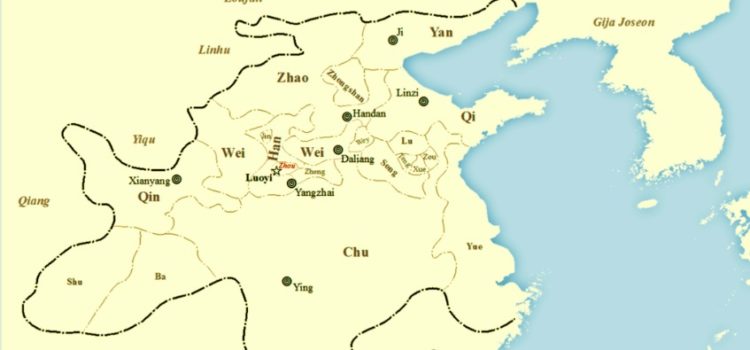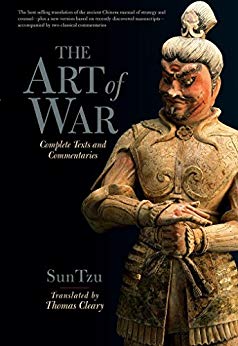

This article is an excerpt from the Shortform summary of "The Art of War" by Sun Tzu. Shortform has the world's best summaries of books you should be reading.
Like this article? Sign up for a free trial here .
What were the battle strategies of the Zhou dynasty armies? Were they successful? What can we learn from the successes and failures of the Zhou dynasty?
We’ll cover two lessons from the battles of the Zhou dynasty against the Jin and Qi about how to conduct yourself in war and in life.
The Zhou Dynasty: The Consequences of Battle Without Strategy
Toward the end of the sixth century, two empires were in conflict for supremacy: the Zhou dynasty and the Qi. The Zhou dynasty ruler wanted to attack a valuable Qi territory, but one of his advisors cautioned against it. The advisor expressed concern over the large and highly trained Qi forces tasked with defending the territory, stating that even if they attacked with their full strength, they would not be able to take the territory easily, if at all. He suggested attacking a smaller, less valuable territory, where victory was more assured. The Zhou dynasty ruler ignored this warning and went ahead with the attack, losing the battle and many men and resources along the way.
Lesson #1: Strategize
The formation that a group of forces takes signifies the psychological state of those forces. How you organize your troops provides insight into the stability and ability of your strategy and forces. Therefore, the formed express volumes and the formless express nothing. Be sure to hide your troop’s formation. The ruler of the Zhou dynasty didn’t have this kind of strategy.
Likewise, the stance or formation of your enemy indicates their psychological state. However, you cannot force your enemy to take a stance. You must understand that victory can be predicted but not created.
- If your enemy fails to expose themselves through formation, you cannot know whether victory is certain.
- If victory is not certain, you should not attack. You can only prepare your own troops.
Defense vs. Offense
Defense means laying low and becoming unseeable. Within strategy, aim to appear formless, or unorganized, to keep the enemy from attaining insight into your forces. But keep your troops organized, and be prepared for the opposition.
- A good defense is the appearance of formlessness.
- Be defensive when victory is uncertain or you are lacking yourself.
- Cover your tracks and appear unorganized until a vulnerability appears in your enemy, then switch to offense.
Offense means attacking swiftly and decisively, bursting forth with the strength of a thunderstorm. If you attack quickly and with strength, it will be impossible for your opponent to prepare or react.
- Be on offense only when you have more than enough power to ensure victory.
This was the mistake of the Zhou dynasty ruler. He couldn’t ensure victory and attacked too soon. It is impossible to gauge the volume of water pooling in a deep canyon. Similarly, when your forces are hidden on the defense, your opponent cannot gauge your volume and strength. Like the release of the deluge, your offense will be massive and overwhelming.
The Easy Victory
A victorious leader wins first and battles second. Therefore, a good leader takes advantage of opportunity, wherein they succeed when winning is easy. This was not the case with the Zhou dynasty ruler. An easy victory means understanding the nuances of your opponent in order to preemptively strike.
- Stand on advantageous ground by taking into consideration all circumstances that create vulnerability in your opponent.
- Another way of thinking about advantageous ground is creating a strategy that is so inscrutable and adaptable that defeating you becomes close to impossible.
- You have a contingency for everything, making you always prepared.
- You know your opponents so well as to be able to recognize even the slightest weakness and exploit it.
The Zhou Dynasty: Reverse Spies
During the sixth century, there was a general of the court of the Zhou dynasty who was well-liked, charismatic, and good at his job. He employed many spies within the court of Qi and the Qi community, and his generosity and benevolence made them loyal. Therefore, the Zhou dynasty knew everything that was happening in Qi.
The Zhou dynasty general devised a plan to plant a song within the Qi kingdom that suggested the prime minister of Qi was planning a coup against his military. A Qi spy helped spread the song, and a rift grew between the prime minister and a Qi general, leading to the former’s execution. Once the Zhou dynasty general learned of the execution, he launched an attack against the Qi kingdom and destroyed it.
Lesson #2: Use Reverse Spies
Like the Zhou dynasty general, use reverse spies.
Reverse spies: Enemy spies who have been pinched and rehabilitated.
- If you can bribe enemy spies and treat them more humanely than their leaders treat them, you can create a double agent to use to your benefit.
- Reverse spies can be enticed into sharing secrets or carrying fraudulent information back to their leadership.
The Role of the Spy
The secrecy involved with using and maintaining spies is on level with the necessary secrecy of strategy. Spies are some of the most cherished and rewarded individuals among the ranks, for their contribution is vital, as seen in the story of the Zhou dynasty. Therefore, it is imperative to treat spies well so as not to entice them to revert to reverse spies for the enemy.
There is a mutual understanding between a good leader and a spy.
- A job well done will garner the spy rich rewards.
- A failed job will lead to the spy’s death.
- If information is received before a spy returns with the information, both the spy and the messenger should be killed.
Likewise, spies are only as good as the intelligence of the people who govern them, as with the Zhou dynasty.
- A successful spy is one provided informed orders, so do not use spies when you lack sufficient knowledge of the enemy.
When you are ready to attack or advance, use spies to provide the required information about the players involved on the enemy’s side.
Use reverse spies to inform actions regarding other spies.
- Reverse spies can provide intel on locals who are willing to inform on the enemy or simply greedy, thus easily persuaded to join forces with you.
- Reverse spies can tell you how to manipulate the enemy.
- This information allows you to understand what information to send through dead spies.
- Reverse spies also provide information on the conditions of the enemy.
- This information allows living spies to traverse enemy territory successfully and return home.
All other brands of subterfuge are possible through information gleaned from reverse spies. This is why reverse spies are the most advantageous and should be rewarded the best. This is the second lesson of the Zhou dynasty.
———End of Preview———

Like what you just read? Read the rest of the world's best summary of "The Art of War" at Shortform . Learn the book's critical concepts in 20 minutes or less .
Here's what you'll find in our full The Art of War summary :
- How to mislead your enemies to win the war
- Classic examples from Chinese history to illustrate Sun Tzu's strategies
- How to use spies to gather information and defeat your opponents






